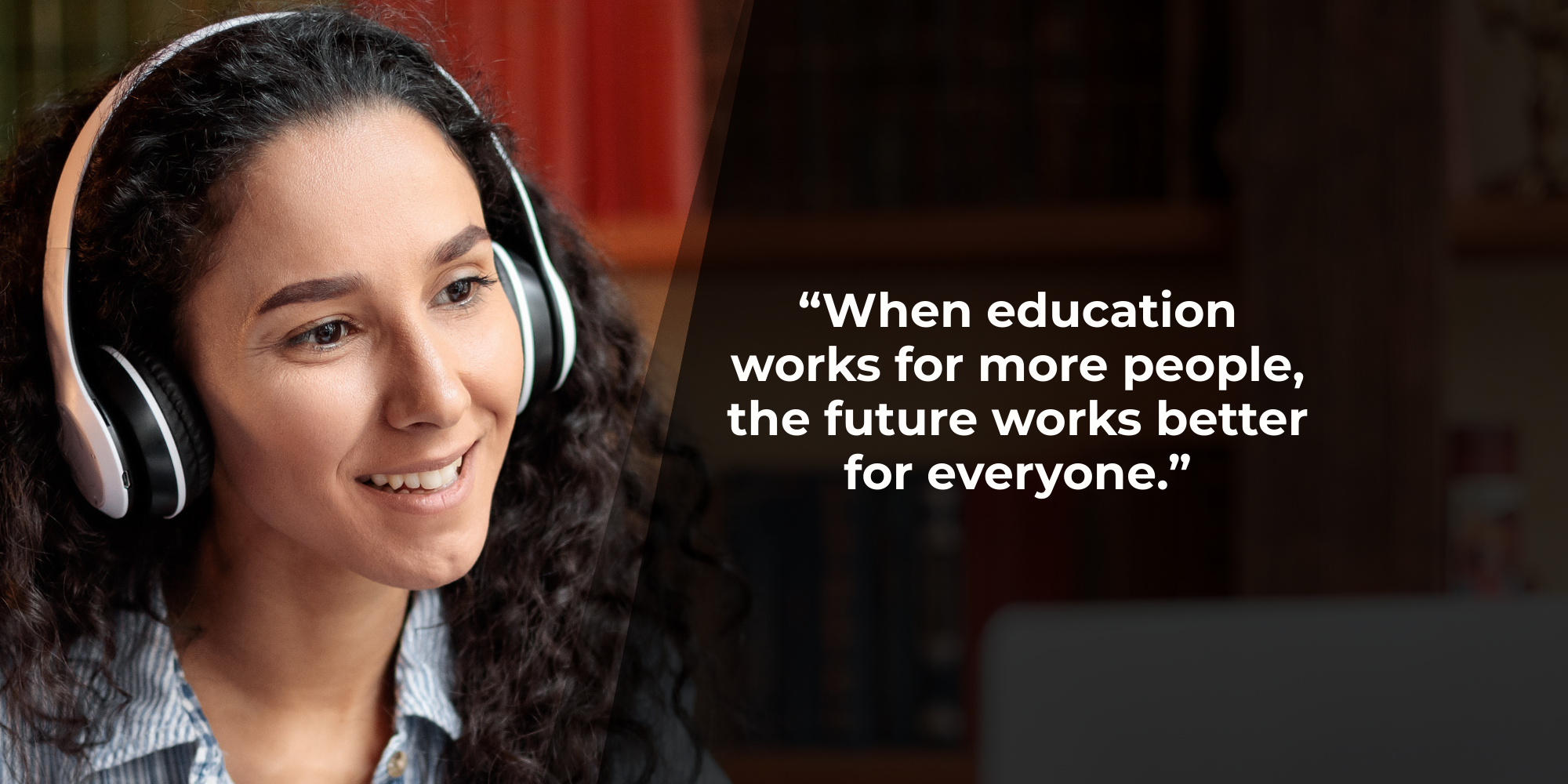Author:
Dr Gráinne Watson
August marks results season in England - a moment of huge anticipation for thousands of students awaiting their GCSE and A-level results. It’s also a huge moment for everyone who’s supported them along the way – teachers, mentors, exam boards, parents and carers alike. The results reflect the efforts of a whole community working to help our children succeed.
It’s also the perfect time to ask the bigger question - is the way we go about assessing students really fit for the future?
In our current set up, we’re preparing students for a digital world using a largely analogue system. The overwhelming majority of our exams are still paper-based, and don’t fully align with how young learners will think, solve problems and work in the real world.
It’s against this backdrop that the calls for a transition to digital-based assessment are growing. And while some are understandably wary about moving away from traditional and trusted methods, it’s important to emphasise that the argument for introducing digital examinations and other technologies into the process is not about gimmicks or trend-chasing. It’s about relevance, and it’s about results. Traditional methods will continue to hold a place in assessment, but a digital approach is needed to move the industry forward.
Implemented correctly, digital assessment - either in hybrid with paper, or a fully digital model - can offer a more authentic and holistic evaluation of students’ skills and abilities, tied more closely to how we actually think and work. It also levels the playing field for learners with additional needs. Right now, it’s less common for students at SEND schools to take GCSEs. The current model – handwritten, unfamiliar, noisy – can be stacked against them. Digital tools can change that by enabling flexible, personalised ways to learn and be assessed. And that doesn’t just help SEND learners, it can make things better for everybody.
Positive changes are already well underway, with digitally enabled marking in particular already improving consistency and speed. A recent proof of concept project undertaken by RM showed that bespoke AI models can mark an English paper in just five seconds (compared to 40 minutes for a human marker), at a level more consistent than humans. That’s not the future, that’s now.
The real opportunity though lies not just in how we mark assessments but how we design and deliver them. Countries like New Zealand and Australia are showing us the art of the possible. Implementing digital assessment for more than a decade, they’re not just replicating paper exams on screen, they’re taking a ‘digital by design’ approach – developing digital assessments specifically designed to reflect the skills required for the world of work and real-life contexts.
What made the difference? A fully aligned, system-wide approach. New Zealand, for example, took a phased approach across the whole education system, making sure everyone from school leaders, examiners, and learners had the confidence and support to make the switch. They invested in strong coaching, robust protocols, and technical readiness so the whole system was genuinely prepared come exam day. Curriculum planning, school infrastructure, and workforce training all moved together, with alignment across the assessment community, not just isolated initiatives.
And that’s what England needs. A joined-up approach, with government setting the momentum and supporting the assessment community to move forward together. At the moment, exam boards are doing a sterling job driving much of the innovation. However, without national alignment, we do run the risk of fragmented progress. A modern assessment model needs shared direction, investment in people and infrastructure, and a unified approach across schools, awarding bodies and policy. We look forward to the upcoming Curriculum and Assessment Review recommendations this Autumn as an opportunity to enable that.
Going digital needs to be about working together as one community to build a smarter, fairer system that reflects the world our children are heading in to. When education works for more people, the future works better for everyone.
Contact:
RM: Claire Matthews
Email: cmatthews@rm.com
Tel: +44 (0) 7359 682092
